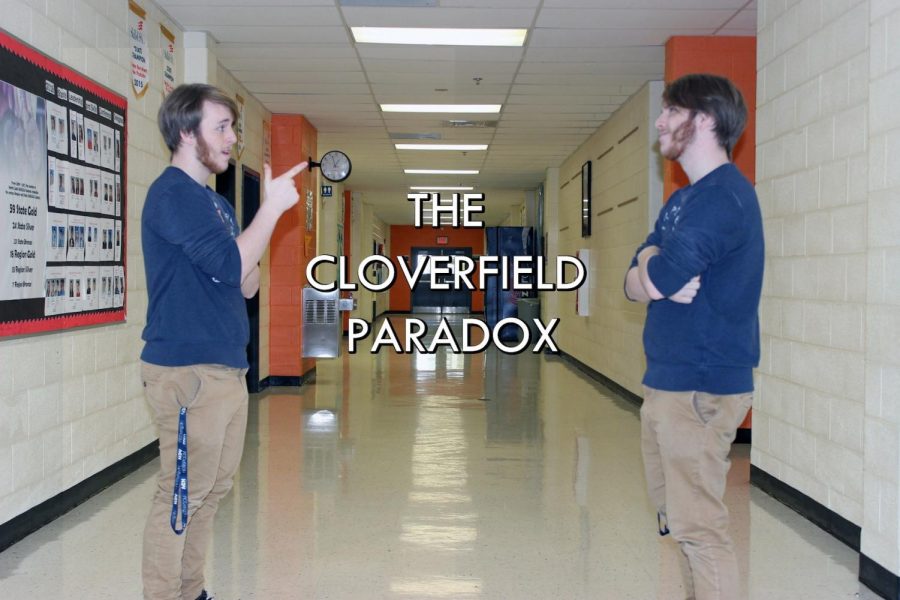The Cloverfailed Paradox
March 11, 2018
The Cloverfield franchise centers around a loosely connected cinematic universe, which the new Netflix original movie The Cloverfield Paradox explains. Originally entitled The God Particle, the production remained secretive up until its legendary reveal and release on the omnipotent platform Netflix on Superbowl Sunday, February 4, 2018. With a creative take on the space horror genre, The Cloverfield Paradox fails in expanding the Cloverfield franchise with grace, feeling more like a forced inclusion into the universe than a beneficial addition.
The start of the film relies heavily on a poorly paced and creatively dull montage introducing the main character and basis of the plot. The earth of The Cloverfield Paradox faces an extreme energy crisis, offering the same commentary of the most basic science fiction films—critiquing societies’ wide reliance and use of fossil fuels. The first scene places the main character Ava (Gugu Mbatha-Raw) with her husband Michael (Rodger Davies) at an incredibly crowded gas station. There, Michael convinces Ava that she must take a position on the mission that could save humanity, and experiment with the God particle. Along with a well-trained crew, Ava will ascend into space aboard The Shepherd, an experimental space station designed for harnessing the energy of the God particle, which would end humanity’s slow decline towards devastating resource wars.
Ava signs on the mission as the Communications officer with a team of the world’s greatest scientists and engineers. This begs the question: why Ava?
Unlike the rest of the crew, Ava offers no unique skills, and her position almost seems outdated in the year 2028. Also, the audience later learns of her recently deceased children, which seems like an easily avoidable red flag that could compromise her utility and ultimately put the fate of humanity at risk.
The rest of the crew receives brief and forced character exposition in the aforementioned montage at the beginning of the film. Instead of actual characters, the crew instead feels like the most basic of stereotypes. David Oyelowo plays the station commander Kiel, who nobly plays his part, and seems like the only scientist capable of rationally grasping the importance of the task at hand. Daniel Bruhl plays German physicist Ernst Schmidt, primarily coming off as the villain; going off the “evil German” stereotype. Cleverly, the film allows Schmidt redemption at the end— critiquing the aforementioned stereotype. The performances by other members of the crew feel cookie cutter and stale, dragging the film down a tier.
After experimenting with the God particle, the crew finds they ripped the fabric of space and time, causing all kinds of weird space time anomalies. This reveal pays off in no fashion, as the crew and audience learn of this possibility early in the film; after watching a newscast wherein the anchors and special guests critique their mission- before the catastrophic events of the film. This reveal of the source of the character’s problems before they even happen kills the entire dramatic tension of the film. The audience must accept that absolutely anything, no matter how ridiculous, results from the crew breaking the laws of physics—a pretty cheap plot device that haunts the film.
The Cloverfield Paradox failed in embodying the Cloverfield feel and aesthetic, and ultimately weighs heavily on the overall quality of the franchise.
The Chant’s Grade: D+







